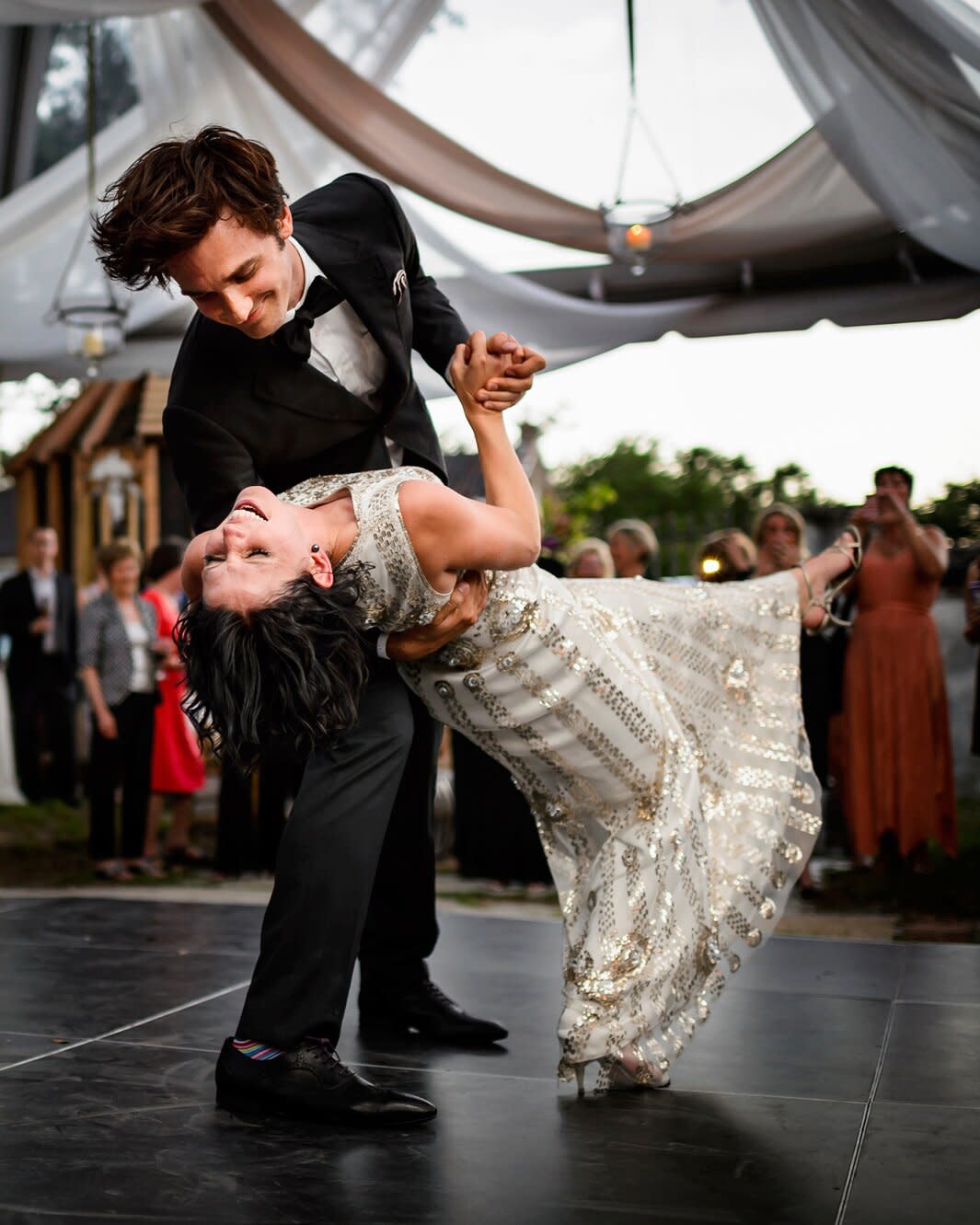Wedding Music Checklist

Chrisman Studios
On a wedding day, music is key, from the ceremony's processional to the DJ or band's farewell song. It moves us to tears, fills us with joy, and makes us shake our bodies with abandon. Take a look at when you'll want to have spectacular sounds color your wedding day, plus some additional reception music advice.
Ceremony
For the prelude: Welcome friends and family as they arrive at the wedding with about 30 minutes of mellow, romantic music like the Brandenburg Concerto No. 2, by Johann Sebastian Bach.
For the bridesmaids' processional: As the bridesmaids walk up the aisle, play a song with a light but sincere tone that's at least four minutes long, like "Waiting on a Friend," by the Rolling Stones.
For the bride's processional: For your momentous walk with your dad or mom, find a tune that's appropriate in tone and lyrics, if any, like "Trumpet Voluntary," by Purcell.
For the recessional: After the "I dos," end the ceremony with a buoyant piece that underscores your joy, like "Beautiful Day," by U2.
Reception
For the first dance: Take to the dance floor as a married couple with a song you can sway to (and that's no longer than three minutes) like "Just the Way You Are," by Bruno Mars.
For the parents' dances: Dance with your dad to a tear-jerker like "Hero," by Mariah Carey, or a sweet tune for the groom and his mom like "A Song For Mama," by Boyz II Men.
For the last dance: Make it memorable with a classic like "Somebody to Love," by Queen.
More Tips
Start searching at least six months ahead. Popular bands and DJs get booked early, so keep that in mind during wedding planning. Ask recently married brides for their recommendations and keep your eyes and ears open if you attend any weddings in the same city or town you're planning to marry.
Decide if you want a band or DJ. Both can deliver the party atmosphere you want so figure out what means more to you-the energy of live performers or the familiarity of original covers?
Take your reception space into consideration. A DJ needs just a table, laptop or turntable, an amplifier, speakers, headphones, and a wireless mic, and he's set. A live band, on the other hand, requires a lot more space-for singers, musicians, instruments, microphones, speakers, and more. Ask the venue for a floor plan of the stage and show it to any band you're considering. If they think the space is too small to accommodate them, move on to a band with less performers or hire a DJ.
Ask your venue about its electrical power. A band will have more electrical power requirements than a DJ, so make sure the venue can handle it. Get their specs and share with the band when you're discussing their space requirements.
Think about your budget. Live music is much costlier than a DJ, most of whom charge an average of $500 to $1,000 for a four-hour event. Plan on paying an average of $400 per musician for four hours; for a six-to-ten-member group-a rhythm section (piano or keyboard, bass, drums, and guitar), a small horn section comprising saxophone, trumpet, and trombone (one to three horns is average), and a "hands-free" (non-instrument-playing) vocalist-the bill should average between $2,400 and $4,000.

